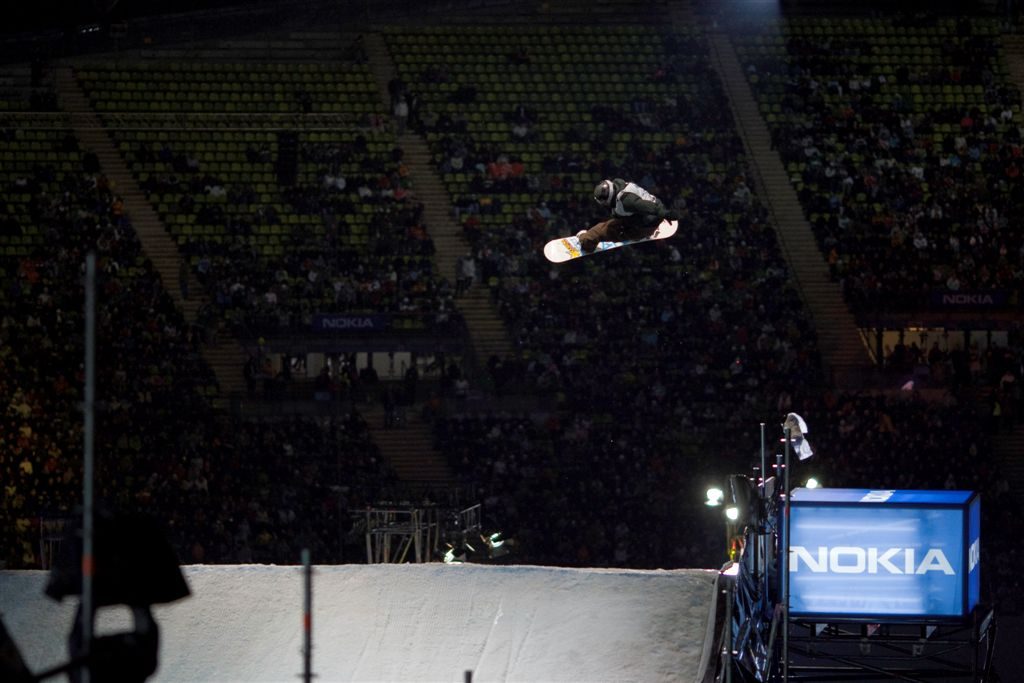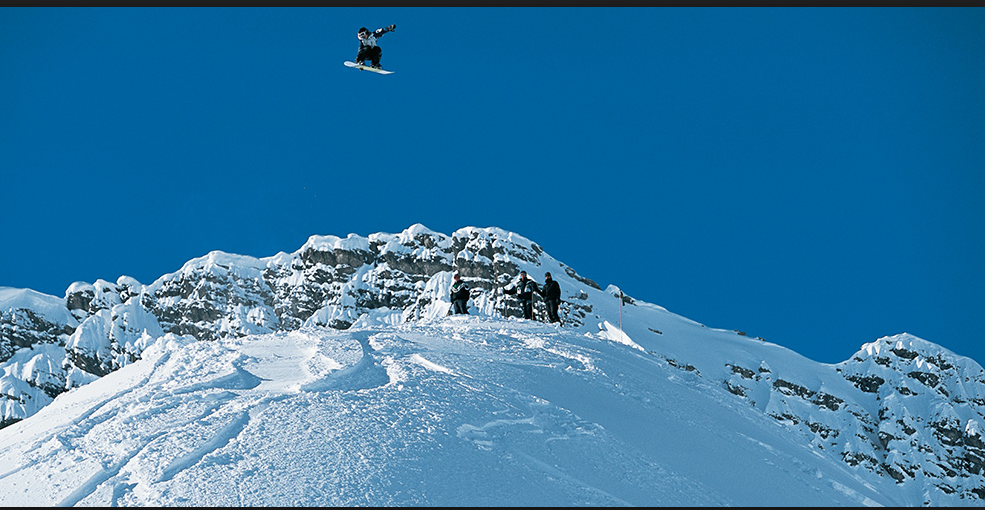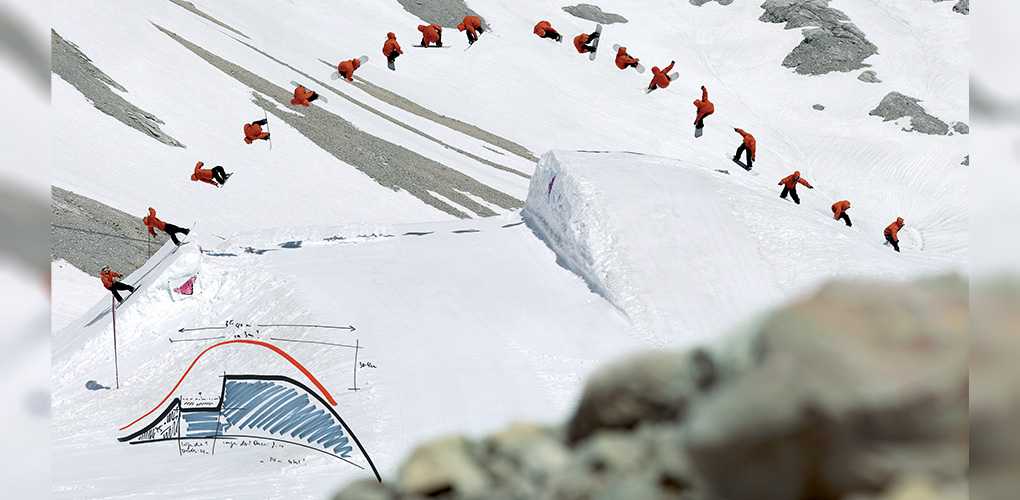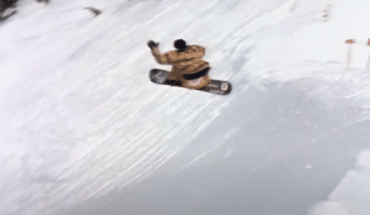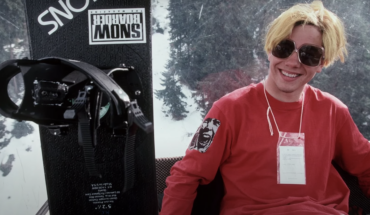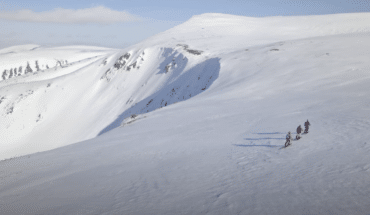You would be hard pressed to find anyone that isn’t a fan of David Benedek. The Robot Food movies are on every favourite single snowboard top 10 movie list ever written and David’s ender in Afterbang and opener in Lame are a major standout of those much cherished videos. David, along side Chrisptoph Webber helped pioneer a new style of kicker that saw birth to many of todays’ tricks. Whilst he wasn’t the first to do a double cork, his first really got the ball rolling of future developments. Benedek has also brought us 91 words For Snow, In short and that banging back 1 double shifty at Air and Style. Here we speak to the man himself.
You quit being a professional a lot earlier than some pros, do you ever regret quitting or feel you could have gone on for longer?
No. As sweet as the lifestyle and everything that comes with it was, I was actually looking forward to not scaring the shit out of myself and snowboarding for myself instead for cameras. Not that I didn’t immensely enjoy it, but it’s so cyclical every year that after 10 years of doing nearly the same I felt very ready for some change.
How up to date do you keep with snowboarding now and how many days do you ride per season?
I don’t keep up like I used to, I mean, I was an absolute fanatic. I probably thought about snowboarding or snowboard-related stuff about 95% of the time I was awake and thinking. Now I just randomly watch stuff or check out a winning run or part here and there. I am actually terribly out of touch when I think about it. When I watch a contest now I will honestly have no idea who half the people are.
Do you have any of your sponsors from back then?
No, but I am still friends with everyone and I get product whenever I need to, so I guess I am still a flow rider
How do you feel snowboarding has changed since you concentrated on other projects and would you say these changes are positive?
That’s pretty hard to say, actually, because I am not involved that much anymore. So I might be missing a lot of smaller currents that eventually lead into bigger developments. Generally though, from a cultural point of view, it seems very much like it did when I compiled my book a few years ago: it doesn’t really matter too much what’s happening on the outer and more mainstream rim of snowboarding – probably it’s struggling a bit there currently , what happens on the inside and what actually rejuvenates snowboarding and keeps people interested always remains very energetic. I think snowboarding is doing very well, culturally.
You have been at film school in Munich, how did you find it adjusting to regular life after being a pro?
Sometimes it’s easier, sometimes it’s a bit harder. It’s not so much about being spoiled or lacking adrenaline, it’s more that I feel a professional athletic career (even though it feels weird to call snowboarding that), seems to follow a bit of a different set of values. Pushing the boundaries, overcoming fear, success, that’s kind of the currency of the game. And as much as that applies to most of life, I feel it’s the hardest to just be cool with a slower pace. With trying things without having it to be amazing right away. That’s what I feel is the hardest part.
Robot food got such a great response and many people still say it’s their favourite movie, did you anticipate it would become so popular whilst making it and what is the key to its success?
To be honest, at the time of the first Robot movie I was just a rookie who was with the right people at the right time. I certainly had some kind of influence on what we were doing but I was more of a passenger than a driver in the beginning. So I didn’t anticipate anything.
Has attending film school made you wish you did anything differently with your snowboard releases?
No, not really. Of course, looking back at most of what we did feels very amateurish but that goes for everything and I think it was mostly amateurish in the best possible way: trial and error. Repeat. I don’t think you need to be going to film school for that, even if I really enjoy the experience.
Did you ever think about producing some more snowboard movies after “In Short”?
Not really. We did want to make another documentary right afterwards that only involved snowboarding to a certain extent but we never really developed the concept far enough. At this point I doubt I will be making another snowboarding film, there’s simply too much interesting stuff out there that I don’t know yet.
The Gap Session was the first time we saw people really getting to grips with double corks, after JP Walker and Travis Rice. Do you feel like you are in some way responsible for all modern corks we see today?
No, as you say, JP and Travis did those before me. I was just one of the first ones to get them on lock and put them into a contest arena, so if anything I just accelerated that development a bit. I am still surprised how little people have innovated in that realm. I mean, there are definitely a bunch of weird variations or late flips that I thought would be out there today. It seems that people have been more worried with putting another flip at the end of the respective status quo.
At your peak, German snowboarding was really strong with the Ratiopharm team, the Gap camp but in recent years we have seen a decline in German pros and also the age of all snowboarders is growing, what caused these changes and what can we do about it?
I am not sure. I guess there are always waves of people having a good breeding ground, the right influence and so on… and then that might fade over time and come back or not. There’s a lot of factors that go into that: parks, people to look up to, federations, community… we had all that when I grew up.
Which of your video parts do you look back on the most fondly and why?
Probably “lame“. That one’s just the most flawless one I think. Not too many fillers and a good mix of tricks. If I had to pick one single part of all the years of watching snowboarding videos then I’d probably pick JPs part from The Resistance.
Index Photo: Christian Brecheis




